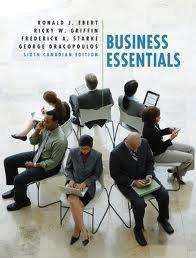2. Should recruiters be legally permitted to conduct background checks on candidates based on publicly available information
Question:
2. Should recruiters be legally permitted to conduct background checks on candidates based on publicly available information on social media sites?
Does this prospect worry you? The internet has transformed the job recruitment process. Online recruitment sites like Monsler.ca and Workopolis made the first revolutionary impression and changed the traditional job-hunting process a few years ago. However, the best way to find a job is through a personal contact. Since social media plays a big role in the private lives of job hunters and HR officers, it is only natural that this relationship would transfer into the job-search process. Some sites like Linkedln were designed with business networking in mind; others like Facebook and Twitter are evolving.
Here are some examples.
• Razor Suleman runs I Love Rewards Inc., a Toronto-based company that consults companies on employee incentives and recognition programs.
When the company needed to hire 17 people he did not place ads in a national paper (approximate cost $5000) or use an internet job site (approximate cost $700). Instead, he asked employees to put job postings on Facebook, share them with their Linked In networks, and tweet them to friends.
He expects this approach to yield 1000 applicants at a minimal cost. It costs on average $2000 to fill a clerical job and $35 000 to fill an executive position using traditional means.
Step by Step Answer:






